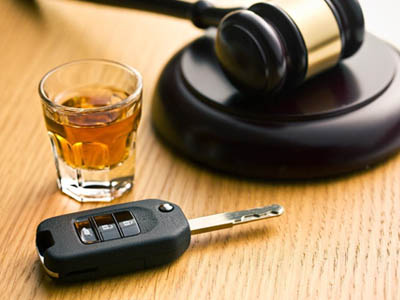Defending Against DUI Charges In Connecticut

- The ideal time to hire a DUI attorney after an arrest.
- The importance of seeking counseling during a DUI case, whether guilty or not.
- The sequence of events in a DUI case from arrest to plea and preparation for defense.
When Is The Ideal Time For You To Hire A DUI Attorney?
There is no fixed rule about when to engage a DUI attorney. Some people reach out within days of their arrest, while others might wait for a few weeks. Some even get in touch after attending their first court hearing. So, the timeline varies. However, it is advisable to seek legal assistance as soon as possible after an arrest.
What Details Are Important For You To Share With Your Attorney In A DUI Case?
Prosecutors usually base their case on the arrest report, which details the facts as recorded by the arresting officer. This report, along with video evidence from the arrest, forms the core of your case. You and your attorney should review these to establish an accurate timeline and verify the report’s accuracy. As your case progresses, your attorney will need further clarification and confirmation from you.
Is It Advisable For You To Start Counseling During Your DUI Case?
Engaging with an alcohol or drug counselor during your DUI case can be beneficial, even for first-time offenders. While your attorney is not a medical expert, their experience in dealing with substance abuse cases may prompt them to suggest counseling. Especially if you have multiple DUI arrests or convictions, seeking counseling can signal to the prosecutor that you are serious about addressing any potential issues, which could positively impact your case.
When Should You Enter A Plea Of Guilty Or Not Guilty In Your DUI Case?
In Connecticut, you can enter a not-guilty plea at your arraignment. This action is usually taken to preserve your rights and avoid any unnecessary delays. However, this plea does not stop further negotiations with the prosecutor. If those negotiations do not yield a satisfactory outcome, you can proceed to a judicial pre-trial and, if needed, to a trial. A guilty plea is typically entered only at the very end of the process after all other options have been thoroughly considered.
What Steps Should You Expect After Entering A Not Guilty Plea In Your DUI Case?
Before or after entering your not-guilty plea, your attorney will work closely with you to understand the specifics of your case and formulate a defense strategy. This process may involve ongoing negotiations with the prosecutor, consultations with expert witnesses, gathering witness statements, and collecting other relevant evidence. Your attorney will consistently work on building a robust defense by researching and creating a timeline of events.
What Role Does The Client Have In His Own Case?
Any attorney you retain to represent you and who has a strong DUI background will be busy with cases. The attorney has his own routine on how to handle your case. Where resources are available he may hire a Private Investigator to interview witnesses, obtain roadway pictures, have experts review the science of the blood, breath, or urine tests along with having experts review the Standard Field Sobriety Tests (SFST) and the Drug Recognition Expert’s findings depending on whether all of this is needed. The lawyers will be very mindful of the law and will need to determine whether there was a Reasonable Articulable Suspicion to pull you over, the right to detain you and Probable Cause to arrest you. If there are obvious legal arguments he may prepare a Memorandum of Law to share with the prosecutor hoping that it will persuade the Assistant State’s Attorney to reduce the charges against you, nolle or dismiss the case. Reducing the charge could result in a Third Offender being charged as a first offender or a second offender being charged as a first offender. There are instances where the Assistant State’s Attorney may offer a reduction of the charge of DUI to Reckless Driving. While there are other reductions or plea bargain agreements that can result through the negotiation process with the Assistant State’s Attorney the items I mentioned are the more obvious ones the Attorneys come in contact with.
I am familiar with the process of representing you at Court for a DUI. This is a Criminal Court Matter and my practice over the years has enabled me to help DUI clients. Years and Years of representing clients with DUI charges has enabled me to be successful at what I do.
What Are Your Expectations?
A lot of people feel that hiring an Attorney automatically insures their getting out from under the charges all together. This is not the case. Most cases are well documented factually. For instance, the police officer saw a car driving erratically, crossing the center line, driving right onto the berm of the road, speeding, or committing an infraction. These are usually enough to allow the police officer to stop you. The Police Officers have come a long way in documenting the reason for the stop, why they detained you and documenting probable cause to arrest you. If you take a test to measure your Blood Alcohol Concentration (BAC) then those test results, if valid and are at or above the statutory limits, enhance the Assistant State’s Attorney’s case against you.
I always tell potential clients what to expect based upon the facts of the case.
For more information on Defending Against DUI Charges In Connecticut, a free initial consultation is your next best step. Get the information and legal answers you seek by calling (860) 764-2744 today.

(860) 764-2744

